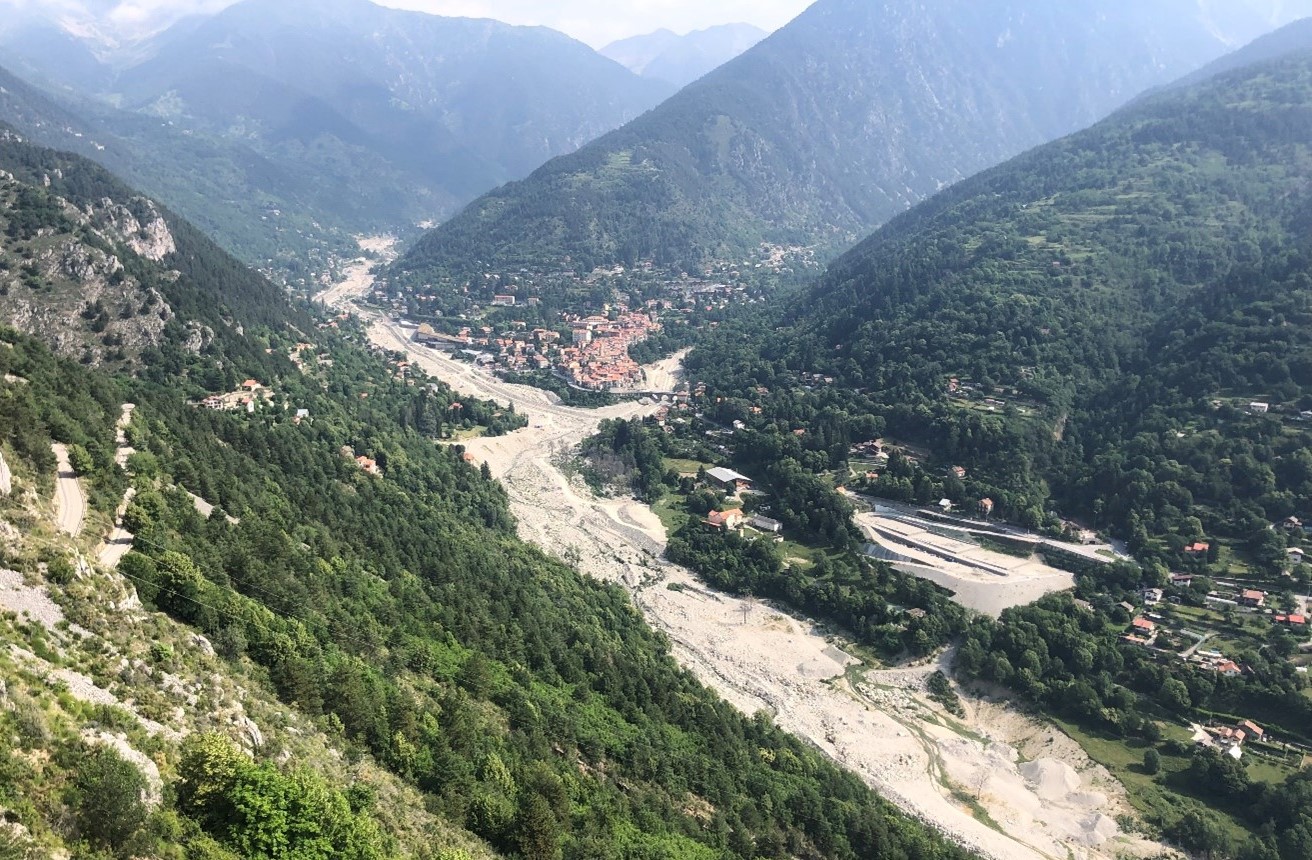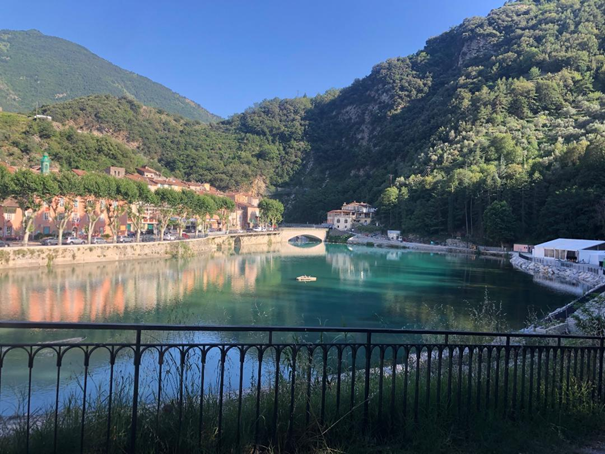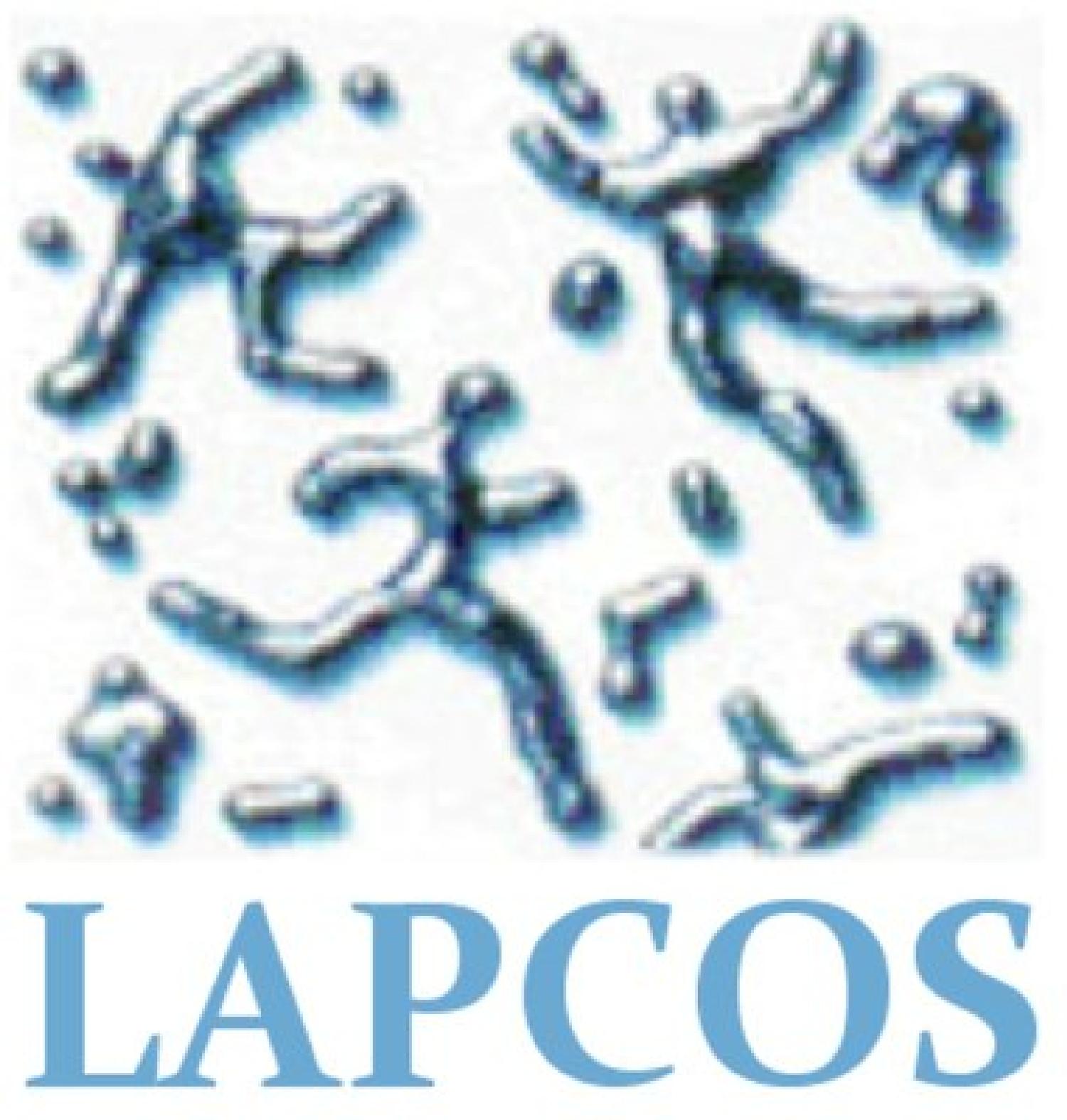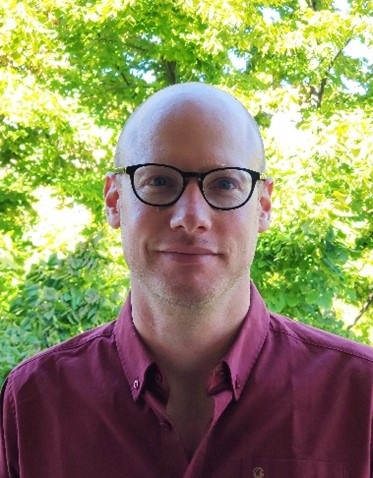Academy of Excellence "Territories, Environments, Risks and Resilience"
After the storm: Studying a natural disaster from an anthropological perspective After the storm: Studying a natural disaster from an anthropological perspective
- Q. MEGRET -
Nothing is more anthropological than a “natural” disaster!
Academy 3 highlight
The project aims at understanding how human communities deal with the risk of flooding and at studying how they adapt to living in such a context of “natural hazards and their impact on local societies.”
The project
In a context of climate change, flooding is one of the main threats that human communities face around the world. This is particularly true in the coastal department of Alpes-Maritimes, where Mediterranean episodes with potentially severe consequences regularly occur. The project AFSTORM studies the multiple social and cultural consequences of Storm Alex, which was a major disaster in the Cote d’Azur’s hinterland. The project seeks to understand the reconstruction and resilience process in affected valley societies and studies how people adapt their ways of living and thinking after this type of event.
In the first part of the project, personal stories and different social perceptions of the disaster were collected. As ethnologists, the project members conducted informal interviews and participated in the daily life of the residents to understand their viewpoints.
The study is organized around three main points. The first is the memory of the disaster. The objective is to get closer to the individuals who experienced the storm and to record their experiences. After a period of media coverage and shock, it is essential to understand how a memory of the event is being formed. The aim is to grasp the different ways of “telling” this catastrophe in the present time. The initial results show that individual stories gradually become part of a collective narrative, forming a local memory of the event.
The second point relates to knowledge, skills, and expertise (KSEs). Studying the KSEs mobilized by the residents during the various phases following the storm has enabled us to understand how this event disrupted everyday social practices and how people adapted to cope with this exceptional context. Results from the field show that local people did not wait for government services to rebuild and take ownership of their environment. “Homemade” structures were set up immediately after the storm (a “makeshift” zip line, for example, was installed with a bow and fishing line to re-establish communication with people isolated by the river).
The final point concerns exploration of issues relating to “living” and “rebuilding” after the disaster. After the storm, several dynamics emerged among the residents: some left the valleys, others stayed and went back to their usual routine with a more or less acute ecological awareness. Storm Alex, and more generally “natural” disasters, are unique laboratories for studying transition processes in a context of climate change. The data collected is still being cross-referenced to provide a more detailed analysis of these reconstruction mechanisms.
In the first part of the project, personal stories and different social perceptions of the disaster were collected. As ethnologists, the project members conducted informal interviews and participated in the daily life of the residents to understand their viewpoints.
The study is organized around three main points. The first is the memory of the disaster. The objective is to get closer to the individuals who experienced the storm and to record their experiences. After a period of media coverage and shock, it is essential to understand how a memory of the event is being formed. The aim is to grasp the different ways of “telling” this catastrophe in the present time. The initial results show that individual stories gradually become part of a collective narrative, forming a local memory of the event.
The second point relates to knowledge, skills, and expertise (KSEs). Studying the KSEs mobilized by the residents during the various phases following the storm has enabled us to understand how this event disrupted everyday social practices and how people adapted to cope with this exceptional context. Results from the field show that local people did not wait for government services to rebuild and take ownership of their environment. “Homemade” structures were set up immediately after the storm (a “makeshift” zip line, for example, was installed with a bow and fishing line to re-establish communication with people isolated by the river).
The final point concerns exploration of issues relating to “living” and “rebuilding” after the disaster. After the storm, several dynamics emerged among the residents: some left the valleys, others stayed and went back to their usual routine with a more or less acute ecological awareness. Storm Alex, and more generally “natural” disasters, are unique laboratories for studying transition processes in a context of climate change. The data collected is still being cross-referenced to provide a more detailed analysis of these reconstruction mechanisms.


The +
The project highlights the links between the natural aspects of a disaster and its social and cultural dimensions, thereby demonstrating the importance of recent events as “natural” disasters.
What’s next?
The next step is to compare the results of the project with those obtained from other “natural” disasters. Based on the data collected, a paper detailing the entire ethnological study of Storm Alex has been written and will soon be published.
Project information
|
Scientific domain
Social Sciences Anthropology |
Key words Alex storm Disaster Flooding Vulnerability Memory |
|
Total budget
€3,222, including €2,922 from Academy 3
|
Students involved
Lucie Guillon (Master) |
| Partners
LAPCOS – Université Côte d’Azur |
Project members Quentin Mégret |
Scientific promotion of the project
- Après la tempête : Étude d'une "catastrophe naturelle" selon une perspective anthropologique », Journées thématiques de l'Académie 3, 2023-07-11. URL : https://hal.science/hal-04167984
- January 8, 2024: communication at the international thematic school of EUR ODYSSEE: https://odyssee.univ-cotedazur.fr/international/ecole-thematique-internationale-2024
- In 2024: session at the LAPCOS Theme 1 seminar


















